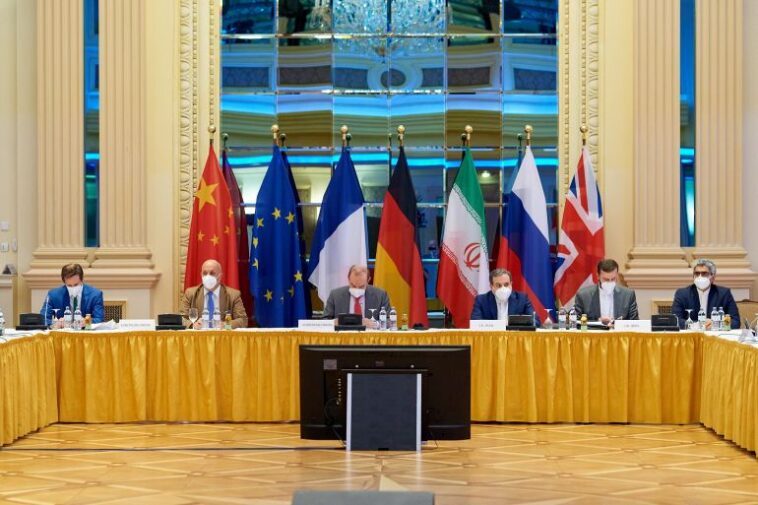On Saturday, Iran’s top diplomat indicated that his nation would be open to re-engaging in nuclear negotiations with the U.S., provided there are assurances of safety from further attacks, according to reports from the country’s state media. Abbas Araghchi, Iran’s Foreign Minister, communicated during a speech given to foreign diplomats based in Tehran, that his nation has been, and will remain open for discussions regarding its nuclear progress. However, he strongly placed emphasis on the necessity of assurances confirming the rescheduling of talks won’t set the stage for potential conflicts.
Araghchi’s statement referenced the recent series of attacks on Iran’s nuclear and military facilities – a 12-day campaign carried out by Israel, along with the solitary U.S. strike that occurred on June 22. He declared that if the likes of the U.S. and other nations truly desired to re-open diplomatic channels with Iran, they must first provide a solid guarantee of non-repetition of such actions. He explained that the attacks on Iran’s nuclear infrastructure have further complicated the path towards achieving a negotiated resolution.
As a consequence of the strikes, Iran made the decision to curtail its collaboration with the United Nations’ nuclear surveillance body, leading to the withdrawal of its inspectors. Commenting on this, Araghchi maintained that, in accordance with Iranian legislation, the country would respond to the agency’s call for collaboration in a selective ‘case-by-case’ manner, always keeping Iran’s interests in mind.
The minister further emphasized the danse macabre of any inspections requested by the nuclear watchdog agency needing to be orchestrated considering Iran’s concern for ‘security’, along with ensuring the safety of the dispatched inspectors. The potential risk of the spread of radioactive elements resulting from an explosion of remaining ammunition in the targeted nuclear facilities, he outlined, is a grave concern.
He reinforced the seriousness of the risk of potential spread of radioactive materials in the aftermath of the strikes on the nuclear sites. An explosion of residual ammunition from the attack could have devastating consequences, he warned. Securing the safety of remaining radioactive materials and containment of dangers was crucial.
Araghchi reiterated Iran’s stance on the goal of continuing uranium enrichment on its own territory, a policy that the U.S. has shown opposition to in the past. He remained firm on this point, insisting that this was in Iran’s best interest.
In contrast, U.S. President Donald Trump has always been resistant towards Iran continuing its uranium enrichment activities. Iran has challenged this stance, asserting their national right to proceed with their nuclear agenda, a key point of contention between the two nations adding more strain to the already tense relationship.
Israel, in its defense, purports it executed the strikes as a preventive measure because it believed Iran was very close to developing a nuclear weapon. However, both U.S. intelligence officials and the International Atomic Energy Agency have opined that Iran has not had a systematic nuclear arms program since 2003.
Despite not having an organized nuclear program according to international assessments, Iran has been noted to have enriched uranium up to 60%. This is a significant progress, as it is just a minor, technical leap away from reaching the weapons-grade enrichment levels of 90%, a fact that has alarmed global powers.
Following the U.S. strikes, Masoud Pezeshkian, the Iranian President, revealed in a recent interview that the attacks considerably damaged Iran’s nuclear sites. The extent of damage inflicted is so severe that Iranian authorities are presently unable to gain access to these facilities to determine the scale of the destruction.
This extensive damage has posed a significant obstacle in the efforts to assess the full aftermath of the strikes. According to Iran’s President, the destruction has hindered Iranian authorities from properly accessing the attacked facilities, leaving the situation and the extent of the damage difficult to fully understand.

